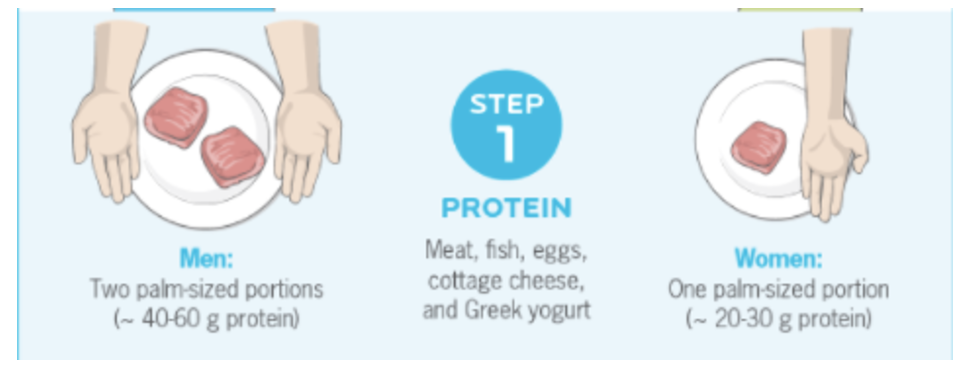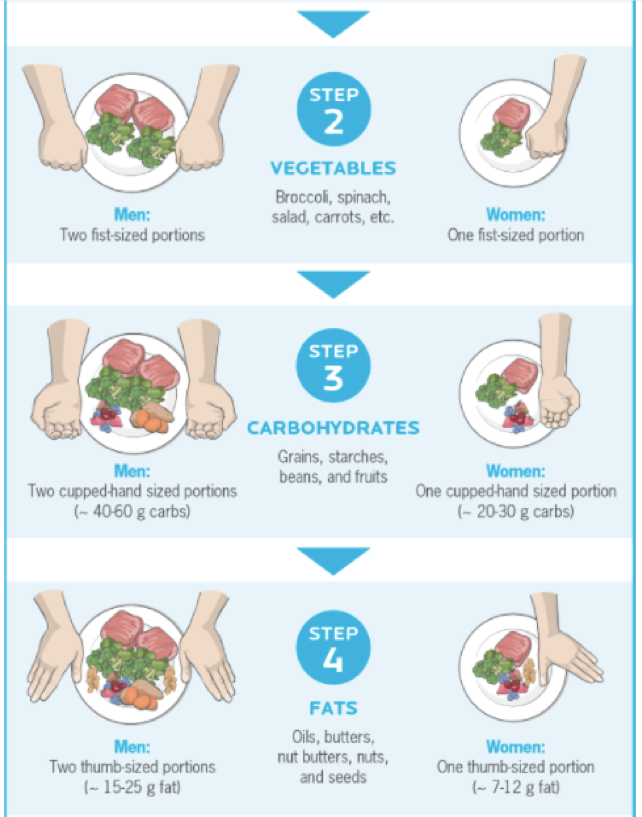How Much Protein Do I Need?
How Much Protein Do I Need?
How much protein do I really need: A simple guide based on science and measurement.

By Frances Smith
The ubiquitous question people ask when they start working out or following a nutrition program is "How much protein do I need?"
First, let's talk about why we need protein. Proteins are organic molecules made up of amino acids -- the building blocks of life. There are two main categories of amino acids in the body: essential (those that the body can't manufacture) and nonessential amino acids (those that the body can usually make for itself).
When we ingest protein, such as meat, our body breaks down this protein source into individual amino acids, and they are added to the pool of available amino acids. This pool provides a supply of amino acids as needed to help produce important molecules in the body, replace worn out cells, transport substances, and aid in growth and repair -- for example, rebuilding after a workout.
Without getting protein through a dietary source, your body will start to break down muscle and other tissues to get the needed amino acids, leading to muscle wasting and weakness.
It depends on a few factors, but the most important is your activity level.
The RDA (Recommended Daily Allowance) is 0.8 grams per kilogram (around 0.36 grams per pound) of body mass in untrained, generally healthy adults, so about 54 grams per day for a 150-pound person. However, this recommended amount is only enough to prevent deficiency; it's not necessarily optimal for people such as athletes or those who train regularly and hard.
For those who train at high intensity, protein needs to be increased to replenish the proteins that are being broken down and used up by the body. Protein needs might go up to 1.4 to 2.0 g/kg (or around 0.64-0.9 g/lb of body mass). So our 150-lb person would need about 95-135 grams of protein per day. These suggested protein intakes are what's necessary for preventing deficiency and basic protein synthesis aka creating new proteins.
Now that we know how much we need to prevent a negative amino acid pool, we may need even more protein added to our diet for optimal functioning, body composition, healthy immune function, metabolism, satiety, and good athletic performance. Another way to look at it is that we need a certain amount of protein to maintain, but we need a lot more to really thrive. Physique athletes and bodybuilders have long relied on the rule of one gram of protein per pound of body weight, which is about 150 grams for our 150-lb person. Studies have shown that even a fairly high protein intake -- up to 2.8 g/kg (1.2 g/lb) -- does not to impair or harm the kidneys in healthy individuals.
To sum it all up, we're looking at minimum of 0.8 g/kg (0.36 g/lb) up to 2.8 g/kg (1.2 g/lb) depending on your individual activity level.
All that a little too confusing? No problem. Check out a super simple method using the Hand Measure system:



The ubiquitous question people ask when they start working out or following a nutrition program is "How much protein do I need?"
First, let's talk about why we need protein. Proteins are organic molecules made up of amino acids -- the building blocks of life. There are two main categories of amino acids in the body: essential (those that the body can't manufacture) and nonessential amino acids (those that the body can usually make for itself).
When we ingest protein, such as meat, our body breaks down this protein source into individual amino acids, and they are added to the pool of available amino acids. This pool provides a supply of amino acids as needed to help produce important molecules in the body, replace worn out cells, transport substances, and aid in growth and repair -- for example, rebuilding after a workout.
Without getting protein through a dietary source, your body will start to break down muscle and other tissues to get the needed amino acids, leading to muscle wasting and weakness.
So, how much protein do you really need?
It depends on a few factors, but the most important is your activity level.
The RDA (Recommended Daily Allowance) is 0.8 grams per kilogram (around 0.36 grams per pound) of body mass in untrained, generally healthy adults, so about 54 grams per day for a 150-pound person. However, this recommended amount is only enough to prevent deficiency; it's not necessarily optimal for people such as athletes or those who train regularly and hard.
For those who train at high intensity, protein needs to be increased to replenish the proteins that are being broken down and used up by the body. Protein needs might go up to 1.4 to 2.0 g/kg (or around 0.64-0.9 g/lb of body mass). So our 150-lb person would need about 95-135 grams of protein per day. These suggested protein intakes are what's necessary for preventing deficiency and basic protein synthesis aka creating new proteins.
Now that we know how much we need to prevent a negative amino acid pool, we may need even more protein added to our diet for optimal functioning, body composition, healthy immune function, metabolism, satiety, and good athletic performance. Another way to look at it is that we need a certain amount of protein to maintain, but we need a lot more to really thrive. Physique athletes and bodybuilders have long relied on the rule of one gram of protein per pound of body weight, which is about 150 grams for our 150-lb person. Studies have shown that even a fairly high protein intake -- up to 2.8 g/kg (1.2 g/lb) -- does not to impair or harm the kidneys in healthy individuals.
To sum it all up, we're looking at minimum of 0.8 g/kg (0.36 g/lb) up to 2.8 g/kg (1.2 g/lb) depending on your individual activity level.
All that a little too confusing? No problem. Check out a super simple method using the Hand Measure system:


